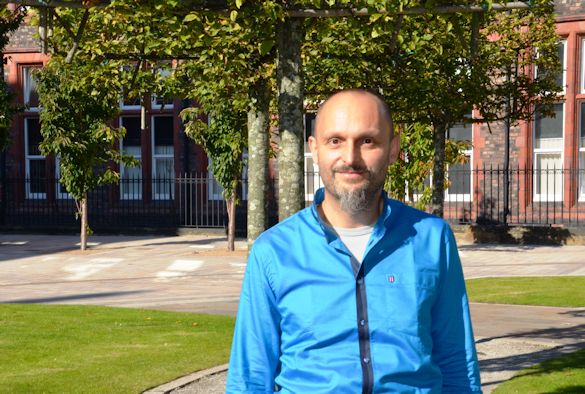
Professor Bruno Merk from the University’s School of Engineering has been awarded a prestigious Royal Academy of Engineering (RAEng) Chair in Emerging Technologies to drive forward an advanced nuclear technology.
Professor Merk is one of eight new RAEng Chairs in Emerging Technologies announced today. The Chairs provide long term support to “engineering global visionaries” who are working in emerging technology areas with the potential to deliver economic and social benefit to the UK.
Professor Merk will expedite the project iMAGINE – a Breakthrough Technology to Make More out of Existing Spent Nuclear Fuel.
iMAGINE aims to develop an advanced nuclear technology to turn spent fuel, currently declared as nuclear waste, into an asset that can be used as fuel for future nuclear reactors without the expensive reprocessing technologies currently used at Sellafield. His innovative approach could significantly reduce the cost of nuclear energy reduce the amount of nuclear waste for disposal and create a valuable net-zero energy resource for future generations. He will work with key industrial stakeholders and government institutions to develop this technology
Professor Merk said: “I am delighted to be awarded a Chair in Emerging Technologies by the Royal Academy of Engineering. This will give me the opportunity to fully focus on pushing forward a ground breaking technology that will make a real practical difference to the UK nuclear energy industry and to the net-zero energy supply for future generations.”
Professor Eann Patterson FREng, Dean of the University’s School of Engineering, said: “Professor Merk is a key member of Liverpool’s team of nuclear engineering academics and this prestigious RAEng Chair in Emerging Technologies will enable him to develop new and innovative technologies with the potential to transform the nuclear energy sector.”
Professor Sir Jim McDonald FREng FRSE, President of the Royal Academy of Engineering, said: “When I see such exciting projects as these, I am genuinely heartened and optimistic about the engineering talent we have working in this country and the critical role our engineers can play in helping to tackle global challenges. These visionary engineers and the projects they will be working on are outstanding examples of why the Academy places such importance on supporting excellence in engineering as part of its strategy to achieve a sustainable society and inclusive economy that works for everyone. We expect great things of them all and I’m confident they will deliver results that will benefit the economy and society as a whole.”
Professor Merk currently holds a Research Chair in Computational Modelling for Nuclear Engineering which is jointly supported by the National Nuclear Laboratory and the Royal Academy of Engineering.
The Chairs in Emerging Technologies scheme is made possible through funding from the UK’s Department for Business, Energy & Industrial Strategy (BEIS).